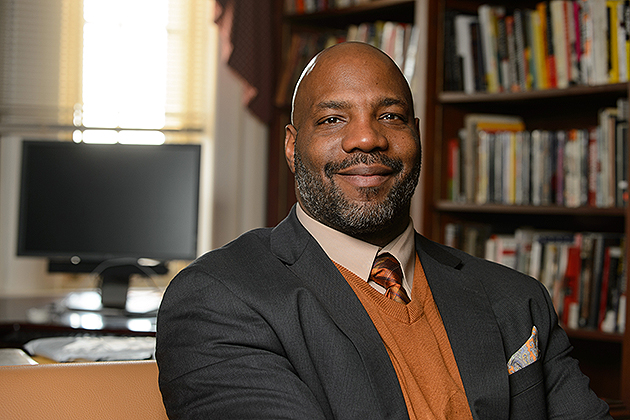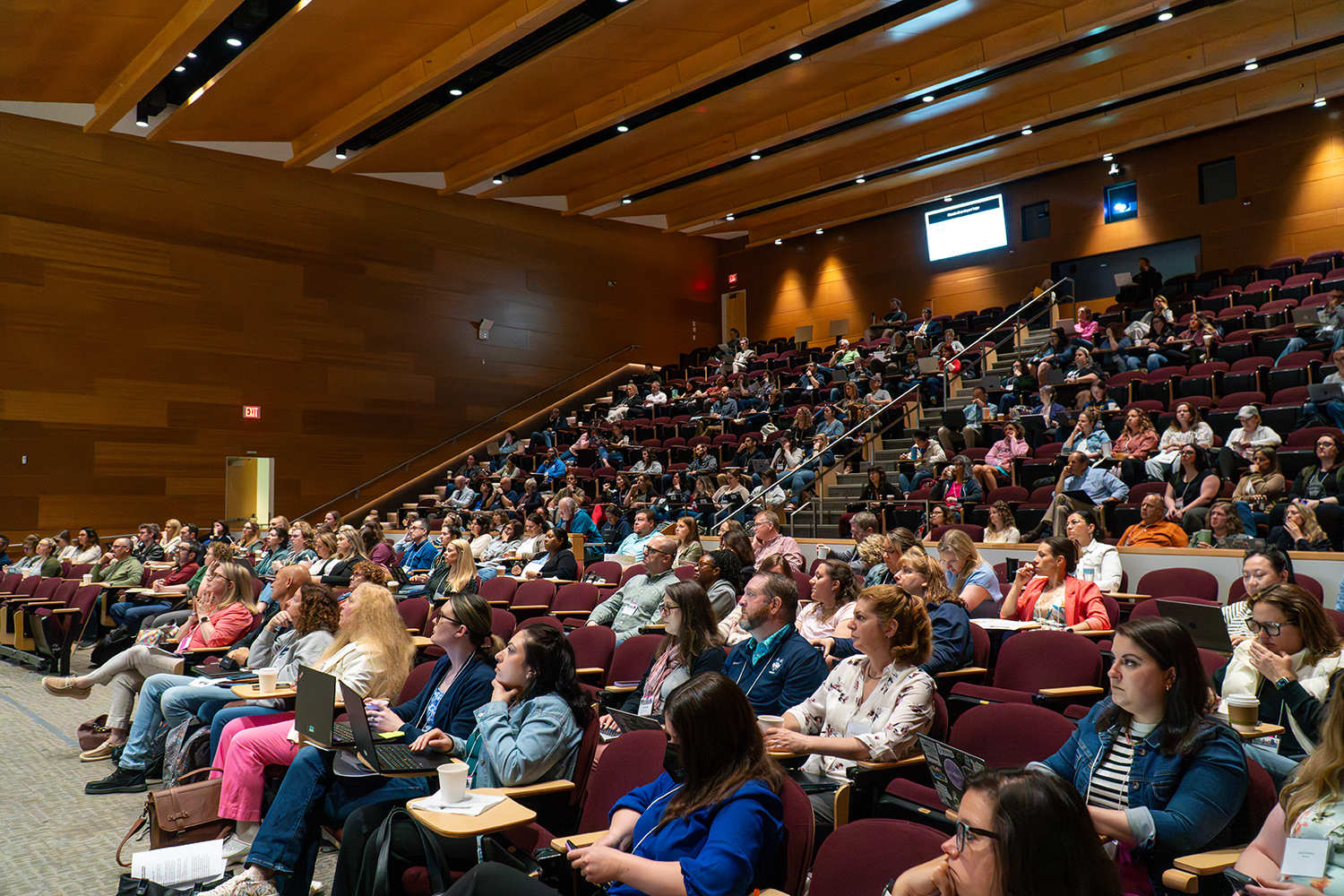
William Jelani Cobb brings an unrepentant curiosity about how the past influences the present to his role as a teacher and social commentator.
Cobb came to UConn from Rutgers University in January, as an associate professor of history and director of the Institute for African American Studies (IAAS). His appointment is part of UConn’s expansive hiring initiative designed to attract up to 500 professors in four years.
This semester, his first on campus, he is teaching a course in African American History to 1865. Yet Cobb’s inclination to ‘say what needs to be said’ about contemporary issues is never very far from the surface, and he is as much at home in front of the media as he is in the classroom or in his office in Wood Hall.
“A lot of times, people see a contradiction in the fact that I teach history, yet I write and speak about contemporary issues. But I don’t see it that way,” he says. “To me, those two things are conjoined. The present is always rushing into the past, and an understanding of the past allows us to see how we got to where we are now. The past and the present reinforce each other.”
Cobb is a native of Queens, N.Y., where he first developed his interest in history. “One of the most important things to me as a young person was that history helped the world make sense to me,” he says. “It literally contextualized my surroundings. It allowed me to see the world around me in entirely different ways.
“I could see the community where I grew up in Queens … which was made up of black migrants from the south and Caribbean immigrants … and I could see how the community came to be populated by those people … why people had come from the Caribbean … why my parents had come from the Deep South … why they had settled where they did. All of a sudden it clicked and it began to make sense. And that is the kind of experience I hope my students get when they study history.”
Before earning his Ph.D. in history from Rutgers University in New Jersey, Cobb studied English as an undergraduate at Howard University in Washington, D.C. He also worked as a journalist while in school, putting in time at the Washington City Paper and at various community and alternative newspapers. In addition to learning to meet deadlines as part of his job, he says, “my dissertation advisor at Rutgers was David Levering Lewis and he gave us an absurd amount of writing to do. I learned to write fast because I had to!”
Raising UConn’s profile
Jeffrey Ogbar, vice provost for diversity and former director of the IAAS, was chairman of the search committee that selected Cobb. He says, “We decided to reach out to people who weren’t necessarily looking for jobs. I knew Jelani had been a department head when he was at Spelman College in Atlanta, so he already had great administrative experience. He is also a public intellectual who has had a lot of visibility. I thought he would be a good colleague, so I asked him if he would consider applying. Once he did, his name quickly rose to the top of [the hiring committee’s] list and we made an offer. Fortunately, he accepted.”
Cobb was well established as a teacher of history and Africana Studies at his doctoral alma mater, so what made him consider a change of scenery?
“When I found out about the position here, there was an immediate sense that this would be an exciting time to be at UConn,” he says. “When I talked to people, I kept asking, ‘Where’s the problem? Where are the bodies buried?’ but I really couldn’t unearth any deep dark secrets. What I found was an institution that was really committed to growing and developing and trying new things. It was something I wanted to be part of.”
Both Ogbar and Cobb say the various centers and institutes on campus play an important role in defining the University’s profile.
“The Institute [for African American Studies] and the other academic and cultural organizations such as El Instituto, or the Center for Judaic Studies, or the Rainbow Center all exist because they help us understand the human condition in a particular context,” says Ogbar, who is also a professor of history. “That’s why they remain relevant to our understanding of the political and socio-economic landscape of the United States, and that’s why they are important to UConn.”
For his part, Cobb says he’s intent on developing the strengths of the IAAS with an eye towards making it more visible, on campus and off. “I would like to see us putting on biannual conferences, being more visible nationally, and getting more recognition for what we do here, along with attracting more students to the African American studies major.”
Speaking out
During his career, Cobb has written many books including, In Our Lifetimes: Barack Obama and the New Black America; a monograph titled Antidote to Revolution: African American Anticommunism and the Struggle for Civil Rights, 1931-1957; and To the Break of Dawn: A Freestyle on the Hip Hop Aesthetic. He has another book, dealing with the Cold War and the American Civil Rights Movement, which is scheduled for publication later this year.
But among his most visible and widely-read works are his blogs for The New Yorker magazine. He has dissected some of the country’s most compelling and contentious subjects as he has written about the murder of Trayvon Martin; Newark mayor Cory Booker and the dilemma of the new black politician; the lessons learned from Quentin Tarantino’s movie “Django Unchained;” and the Obama presidency. A frequent commentator on National Public Radio, he also appears on CNN, Al-Jazeera, CBS news, and other national broadcast outlets.
Says Ogbar, “It’s really exciting to have Jelani come to UConn, and it’s a reflection of the progress we have made as a University in bringing the best and the brightest to campus. When I see him on CNBC or CNN and he’s identified as being from the University of Connecticut, I get excited. I’m glad he’s bringing that sort of recognition to us.”


